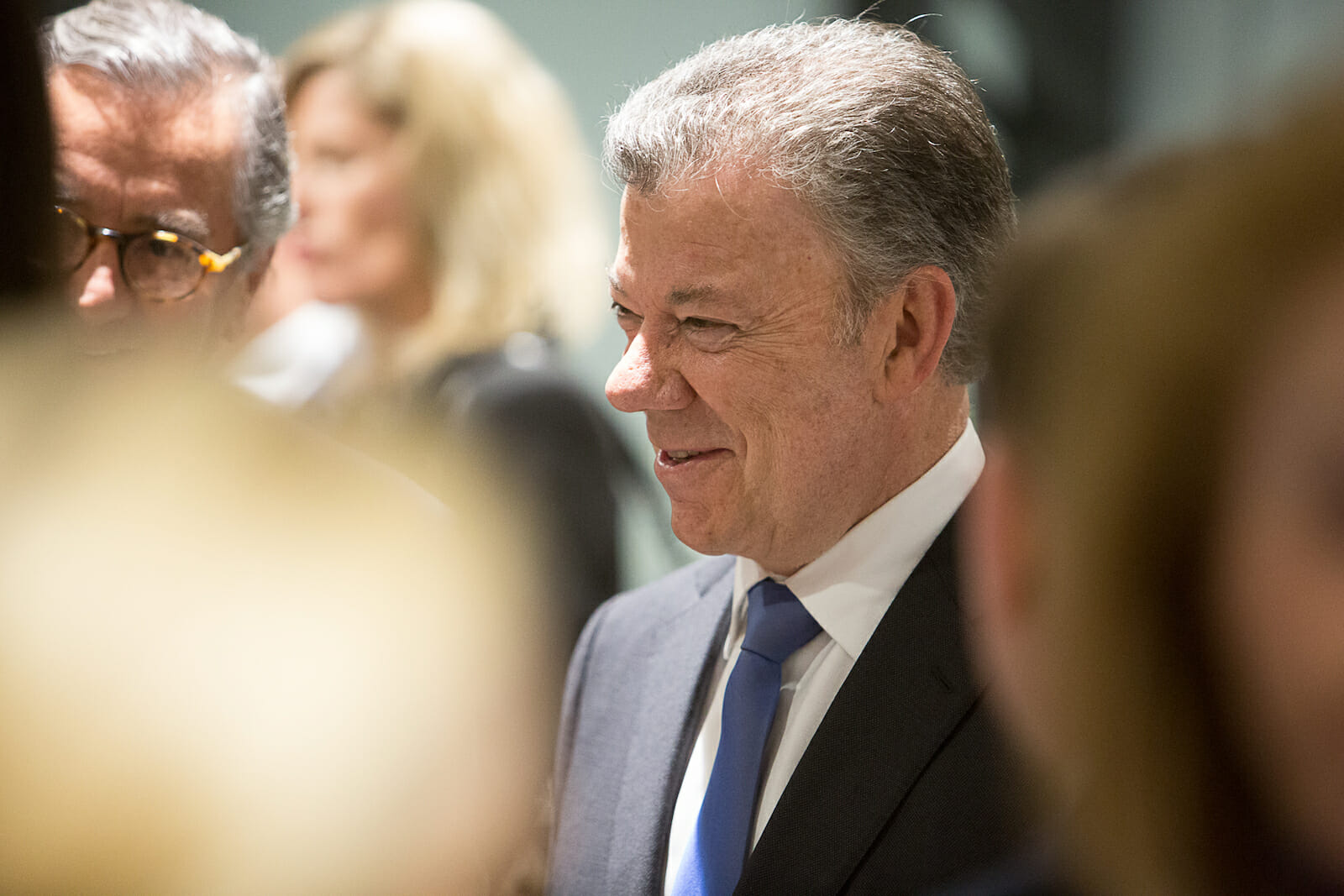
The Promise of Colombia
While much of the globe has been mired in an economic malaise, the simultaneous growth of Latin America has been well chronicled. Most of the attention given to Latin America’s rise has focused on Brazil, which recently surpassed Great Britain to become the world’s sixth-largest economy. The attention has been justified given Brazil’s remarkable turnaround, its economic growth, potential growth, and forthcoming global spotlight by way of the 2014 World Cup and 2016 Summer Olympics. Overlooked by many when examining the opportunities for growth that exist in Latin America is the promise of Colombia.
In January, Colombia’s Minister of Trade, Industry, and Tourism, Sergio Diaz Granados, said that his nation seeks to be the third-largest Latin American economy by 2015. The goal of becoming the “largest economy in Latin America after Brazil and Mexico” is spurred on by their estimates, which show that the Colombian economy grew by 7.7 percent in the third quarter of 2011. The economic forecast is equally encouraging with IMF estimates that the Colombian economy will continue to grow by 4.5 percent between 2012 and 2015.
Reasons for this growth are numerous and at least partly due to the fact that Colombia, like many of its Latin American neighbors, was never as fully integrated into the global economy before the worldwide recession. Some of the economic promise for Colombia must be credited to the government’s aggressive work at nurturing trade relationships regionally and internationally. The previous government and the current Santos government have overseen the renegotiation of trade agreements regionally, including agreements with Venezuela, a neighbor with whom Colombia has a relationship perpetually tumultuous yet potentially beneficial.
More broad international trade agreements have been made with eyes towards the Pacific and towards Europe. There is also the recently agreed to Free Trade Agreement with the world’s largest consumer, the United States. The growing relationship with the United States is one that has been slow to develop but goes well beyond mere free trade. In a statement regarding the Free Trade Agreement, Chair of the House Foreign Affairs Committee, Ileana Ros-Lehtinen said, “Colombia has served as a strong ally in the region” to combat drug trafficking.
Implemented in the 1990s, the Plan Colombia was a significant achievement in proving how a sovereign Latin American state could collaborate with the US to combat narcotics cartels and improve their own internal security. The Plan Colombia was not a ‘cure-all’ as highlighted by a collaborative 2011 report released by the Latin America Working Group, the Washington Office on Latin America, and the Center for International Policy. While there has been great progress made since that time, certain troubling elements of the program’s implementation, combined with the fact that Colombia still produces more cocaine can anywhere else in the world, must be addressed if Colombia is to take the next step that it desires.
Another key component to Colombia’s growth is “Colombia’s Energy Renaissance,” termed as such by a 2010 report by the Americas Society/Council of the Americas. In it, the report suggests that Colombia’s economic reforms regarding oil and gas “could be considered a model for energy management in the region.” This model of efficiency and investment attraction stands in stark contrast to the decline in both areas that have been witnessed in Venezuela’s PDVSA under the influence of Hugo Chavez. Colombia’s energy sector saw oil exports to the US increase by about 66 percent in 2011, placing Colombia as the 7th largest oil supplier to the United States.
But the promise of being a great country involves more than just improving security and growing the economy. The great nations of the world assume leadership roles regionally. Colombia’s President Juan Manuel Santos appears to be embracing this role as his country tries to become a Latin American leader. Recently it was Santos who, ahead of the Summit of the Americas to be held in Cartagena, served as a mediator between Cuba and the other attendees of the Summit. While having never been included in any of the previous Summits, Cuba’s allies in ALBA have threatened to boycott this Summit of the Americas if Cuba is not in attendance. Santos personally flew to Cuba to try and create an amicable resolution to this political stalemate.
These are the actions of a leader who has great hope for the future of Colombia. Long ago, Simon Bolivar proclaimed a vision, albeit in a slightly different context, for a Gran Colombia. Colombians themselves are starting to recognize the progress made and potential that exists in their country. It is time that others in the world begin to pay attention to the promise of Colombia.

